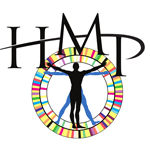Announcing the Human Microbiome Project Collection
 For the first time, a consortium of researchers has mapped the full community of microbes that inhabit various parts of the healthy human body. Many of these findings will be published today in a new PLoS collection. The PLoS Human Microbiome Project Collection consists of articles from the project’s consortium members, who generate, leverage, and explore microbiome analytical techniques. The articles have been culled from PLoS ONE, PLoS Genetics, and PLoS Computational Biology with more being added to the collection as they are published.
For the first time, a consortium of researchers has mapped the full community of microbes that inhabit various parts of the healthy human body. Many of these findings will be published today in a new PLoS collection. The PLoS Human Microbiome Project Collection consists of articles from the project’s consortium members, who generate, leverage, and explore microbiome analytical techniques. The articles have been culled from PLoS ONE, PLoS Genetics, and PLoS Computational Biology with more being added to the collection as they are published.
The manuscripts within the collection provide a comprehensive baseline of the microbial diversity at 18 different human body sites. This baseline includes reference genomes of thousands of host-associated microbial isolates, 3.5 terabases of metagenomic sequences, assemblies, and metabolic reconstructions, and a catalogue of over 5 million microbial genes.
Some of the studies also look at the relationships between the microbiome and the host, and how these interactions relate to health. They describe how specific microbial communities differ in relation to a number of specific conditions: the gut microbiome and Crohn’s disease; ulcerative colitis and esophageal adenocarcinoma; the skin microbiome and psoriasis, and atopic dermatitis and immunodeficiency; and urogenital microbiome and reproductive and sexual history and circumcision and a number of childhood disorders, including pediatric abdominal pain and intestinal inflammation, and neonatal necrotizing enterocolitis.
Accompanying this collection are two articles published in the journal Nature by the Human Microbiome Project Consortium. The results of these two papers provide the foundation for the research published in the Human Microbiome Project Collection.
To read more about this collection, please visit:
PLoS Collections: The Human Microbiome Project Collection (2012) www.ploscollections.org/hmp
